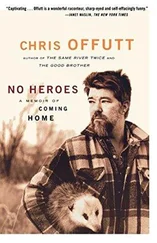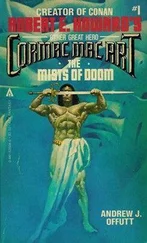He handed me a shovel and sent me to an area at the edge of the campers. Everyone ignored me. I finished my work and walked away. A man strode past me and calmly urinated into the hole.
I returned to Flathead, who sent me to a canvas crew that was short a pair of hands. Trucks circled the field, stopping at precise points aligned with iron stakes driven into the ground. Several men dragged the folded sections of tent from the back of the truck. I was a runner. When pulled fast, canvas becomes slightly airborne, not so heavy, and easier to handle. Another man and I held a corner of the canvas and ran as hard as we could to the extent of the fold, went back, grabbed the next corner and ran again. The canvas sandpapered my hands to blood.
When the sections were laid out, we laced them together while the more experienced men fastened the canvas to bail rings. Walking on the tent risked tearing it, so everyone crawled like bugs, even Flathead. Next came the complicated process of raising the top, one section at a time, to keep them even. My chore was to hold a guy line until Flathead yelled to tie it off. It reminded me of water-skiing — incredible exertion while standing still.
After nine hours, Peaches hoisted the final pole with ropes tied to her harness. The entire tent strained upward while everyone watched, feeling the increased tension in the lines. Flathead tied off the main pole. In the dim interior, we set up three tiers of collapsible bleachers, cursed by electricians and sound people. Flathead announced we were finished and everyone began asking if the flag was up. We staggered into an afternoon sunlight so brilliant we bumped against each other. The entire mass of exhausted men hurried away and I trailed behind, following the herd. Since I hadn’t understood that an upright flag meant dinner was served, I was late. The only thing worse than the dregs of the stew was knowing that everyone else’s sweat had fallen into the pot.
A cook sent me to the sleeper truck for canvas boys. Four levels of bunk beds lined each wall, with a thin corridor running the length of the truck. Our collective bedroom was a mobile lightless hall, extremely hot, that reeked of unwashed bodies. Snoring echoed is back and forth between the metal walls. I found an empty bunk and lay on a mattress the width of a bookshelf.
We stayed three days in town, long enough for me to prove myself a fierce liability as a taffy seller. The candy was cut into tiny plugs that could pull fillings from a molar. I was unable to hawk it aggressively enough to please the head of concessions, a bitter man who limped. He’d been an aerialist until a fall ruined his ankle. His performing monicker had been Colonel Kite but everyone called him. Colonel Corn. After my dismal failure as a candy seller, he decided he liked me since I was less suited to employment than he was. The Colonel rather graciously gave me the lowest job of folding waxed paper around the candy.
The circus possessed a hierarchy with the complex simplicity of the military. Those who rode horses in a standing position were on top of the heap, followed by aerialists, live animal performers, clowns, and the ringmaster. Sideshow freaks made up the middle level. Everyone else drifted at the bottom, producing their own pecking order based on convincing their peers of personal prowess. Canvas boys were the lowest. We had no one to despise but minorities and homosexuals. Since circus people hated them already, the canvas boys were left with honing bigotry to a fine edge.
The technicians seemed to have the simplest job, and I approached Krain, the light man, about work. He led me up a precarious ladder to the booth. Protruding from slots in a metal board were several levers that controlled the intensity of the lights. Krain pulled an electrical wire from beneath the board, separated the two strands, and tucked each one in his jaws, clamped between his teeth. He gradually pushed the lever forward. His eyes got very wide and his lips pulled back in a macabre grin. At quarter power, his head and shoulders began quivering. He brought it back to the zero mark, calmly pulled the wires from his mouth, and offered them to me. I climbed down the ladder.
The aerialists and horse performers never deigned to speak with anyone. As Europeans, they considered themselves superior to the rest of us. The two clowns were hilarious in performance, making me laugh long after I knew their gags. On the occasional free day, they went fishing. I followed them once, hoping for some intangible insight into the private world of professional clowns. I watched from the bushes. They carried tackle boxes and baited their hooks like normal men. They cast and reeled and did not converse. When one caught a fish, the other nodded. The only shift from standard behavior was their method of removing a fish from the line. With a ferocious motion, they ripped the hook free, usually trailing bits of the fish’s interior. Often it was bleeding from the gills.
No one liked the dwarfs because they made more money than anyone else, and in violation of circus tradition, they didn’t squander the loot. At each new town they inquired after the stock market.
In addition to Peaches, the circus boasted three bedraggled tigers that reared on their hind legs as if begging, perched on stools, and crowded together on a large box. A man dressed as a woman snapped the whip over their striped flanks. I was leery of him until the Colonel explained his clothing — an audience was more awed by a female tamer than a male. The tiger man’s great enemy, due to her withering disdain, was the Parrot Lady. The dwarfs called her “an upper crustacean.”
She was part of a sideshow that included a perpetually drunk magician, a trained walrus, and a skinny man, double-jointed at every junction, who could fold himself into knots. There was a strong man who was dying from steroid intake. His brother was a fire eater who told me the hardest part was controlling a sneeze.
The most popular act was the Parrot Lady. She’d begun as a common sword swallower, but like everyone, had wanted to increase her earnings by diversifying her act. Five years later she was the biggest sideshow draw. Women and children were not allowed in her tent. The huge MEN ONLY sign fostered quite a crowd, and on slow nights, teenage boys were admitted for double the price. I watched her performance every night. The tent was always packed, hot, and hazed by cigarette smoke.
She entered from stage left wearing a high-necked, long-sleeved, white formal gown, looking like an aristocrat. The audience gradually hushed beneath her unwavering stare. After a long spell of silence, she began speaking in a voice so low that everyone strained to hear. Each night she told the dirtiest joke imaginable, speaking of cocks, cunts, and fucking as casually as the men’s wives might discuss children and meals. A palpable sense of guilt congealed with lust in the tent, and the men refused to look at one another.
The Parrot Lady stood very still. Her eyes fluttered to stage right and she lifted a hand to her ear. Faint chamber music drifted through the tent. With the grace of a fashion model, she rose from her stool and began an excruciatingly slow strip — from the inside out. She removed a slip first, a petticoat, her shoes, stockings, and two more petticoats, each frillier than the last. She took off her bra and panties last. No one moved. Everyone knew she was naked beneath the dress, a fact more arresting than if she’d actually been nude.
She faced the audience and began to unbutton her dress, beginning at the top of the chin-high collar and working down. Holding the front closed, she continued to her lower belly. The men were leaning forward without awareness of their posture. When her arms could no longer reach the buttons, she turned her back. The long train concealed her legs. Nothing was visible except her slightly bowed head and the long dress that everyone knew was open in front. She remained standing this way a long time. Instead of building to a crescendo, the music faded to silence. The spotlight narrowed its focus. She let the dress fall from her shoulders. Breath came pouring from the men as if each had received a powerful blow in the guts.
Читать дальше












